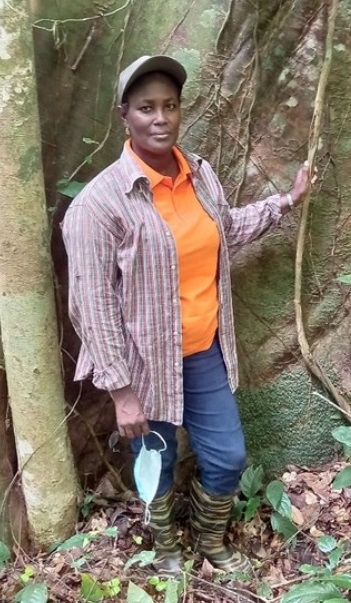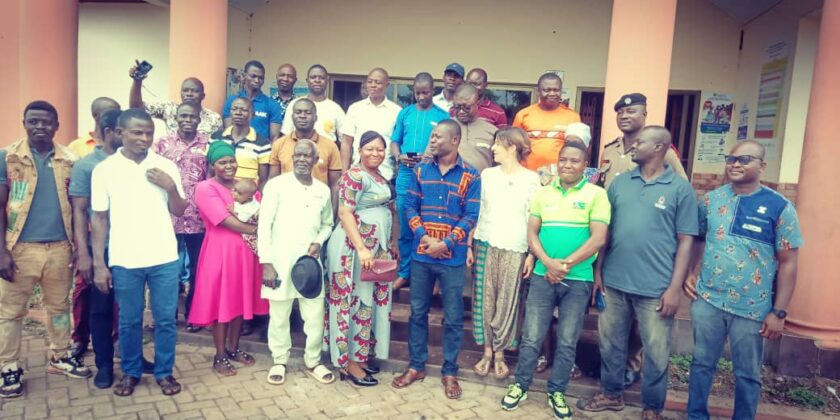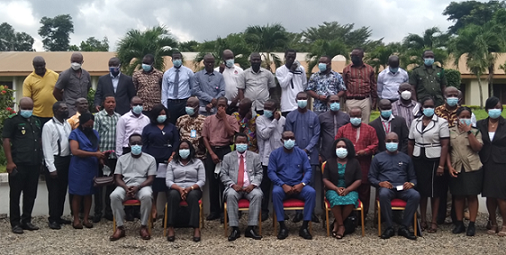Grow with Terraformation: Apply to Our Next Accelerator Cohort in Ghana or Kenya
"The forest restoration company, Terraformation, has launched its next call for applications to its Seed to Carbon Forest Accelerator program. The program helps cohorts of local implementation partners develop their respective reforestation carbon projects and connect to carbon financing. Terraformation’s fifth cohort will focus on Ghana and Kenya and will consider applications received by Sep 30."


 Forestry Research Institute of Ghana of the Council for Scientific and Industrial Research (CSIR-FORIG) has identified citronella oil/extract as highly potent to fight fungus that causes black pods disease in cocoa. Several trials had been done in the laboratories and now the institute is looking at the concentrations that would be ideal to control the cocoa black pod fungus.
Forestry Research Institute of Ghana of the Council for Scientific and Industrial Research (CSIR-FORIG) has identified citronella oil/extract as highly potent to fight fungus that causes black pods disease in cocoa. Several trials had been done in the laboratories and now the institute is looking at the concentrations that would be ideal to control the cocoa black pod fungus.
 Mr Edward Akunyagra, Project Manager for World Vision Ghana, has called on stakeholders to institute measures and policies to promote sustainable landscape restoration. He said there should be effective coordination and engagement of all relevant stakeholders to ensure the success of interventions and long-term sustainability of landscape restoration to enhance food security in the country.
Mr Edward Akunyagra, Project Manager for World Vision Ghana, has called on stakeholders to institute measures and policies to promote sustainable landscape restoration. He said there should be effective coordination and engagement of all relevant stakeholders to ensure the success of interventions and long-term sustainability of landscape restoration to enhance food security in the country. Poor countries need up to $300 billion, not the initial $100 billion per year by 2030, for clean energy and climate adaptation projects. According to a UN report released earlier this month, there is a growing gap between the cost of climate adaptation in developing countries and the amount of public finance available for it. The report estimates that developing countries need five to 10 times more funding than they currently have to manage climate impacts.
Poor countries need up to $300 billion, not the initial $100 billion per year by 2030, for clean energy and climate adaptation projects. According to a UN report released earlier this month, there is a growing gap between the cost of climate adaptation in developing countries and the amount of public finance available for it. The report estimates that developing countries need five to 10 times more funding than they currently have to manage climate impacts. The Forestry Research Institute of the Council for Scientific and Industrial Research (CSIR-FORIG), has identified 28 lesser used timber species on the market without adequate technical information for their efficient use.
The Forestry Research Institute of the Council for Scientific and Industrial Research (CSIR-FORIG), has identified 28 lesser used timber species on the market without adequate technical information for their efficient use. Forty Participants on Thursday in Bunsu CSIR-PGRRI benefitted from a training aimed at equipping young people with skills and knowledge in snail farming to improve their livelihood and boost snail production. They included staff of the National Youth Authority (NYA), Agricultural Extension Agents and farmers.
Forty Participants on Thursday in Bunsu CSIR-PGRRI benefitted from a training aimed at equipping young people with skills and knowledge in snail farming to improve their livelihood and boost snail production. They included staff of the National Youth Authority (NYA), Agricultural Extension Agents and farmers.